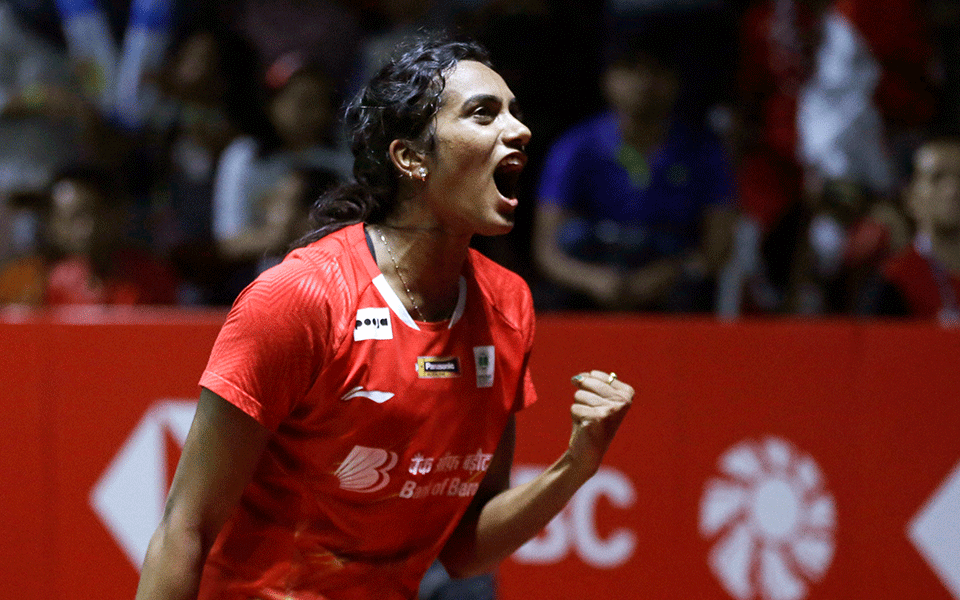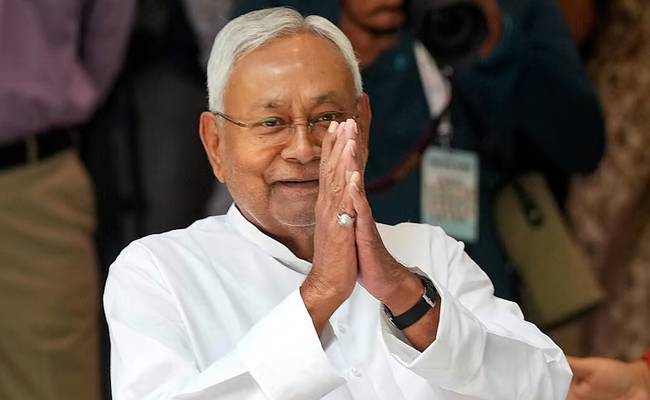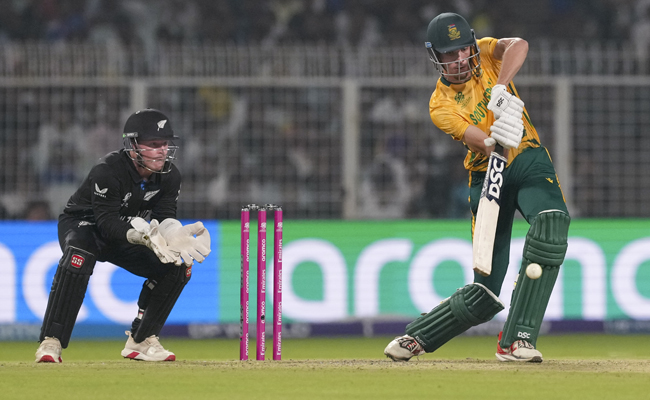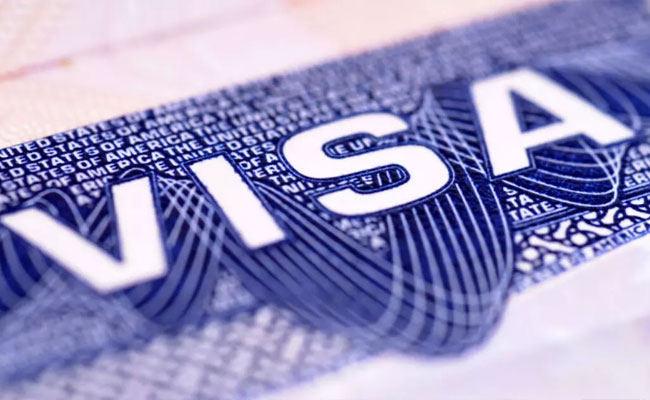Tokyo: Indian shuttlers P V Sindhu and B Sai Praneeth moved into the quarterfinals of the Japan Open after registering contrasting wins in their respective events here on Thursday.
While fifth seed Sindhu had to toil hard in an hour-long battle to get the better of unseeded Japanese Aya Ohori 11-21 21-10 21-13 in a second round women's singles match, Praneeth sailed past another local shuttler, Kanta Tsuneyama, 21-13 21-16 in a men's singles encounter that lasted 45 minutes.
However, H S Prannoy, who knocked out compatriot Kidambi Srikanth in the opening round, went down to Rasmus Gemke of Denmark 9-21 15-21 in his second round match.
The win at the BWF World Tour Super 750 tournament on Thursday extended Sindhu's head-to-head record to 8-0 over Ohori.
Sindhu will next face the winner of the match between China's Chen Xiao Xin and fourth seeded Japanese Akane Yamaguchi, to whom she lost in the final of the Indonesia Open last week.
Sai Praneeth, on the other hand, will face Indonesia's Tommy Sugiarto in the men's singles last-eight round.
It was good news for India in the men's doubles event as the pair of Satwiksairaj Rankireddy and Chirag Shetty made it to the quarterfinals after emerging victorious in a tough three-game second round affair in 53 minutes.
The Indian pair came from a game down to quell the challenge of China's Kai Xiang Huang and Cheng Liu 15-21 21-11 21-19 and set up a quarterfinal clash with second seeded local combination of Takeshi Kamura and Keigo Sonoda.
In the match between Sindhu and Ohori, the Rio Olympics silver medallist Indian shuttler was slow to get off the blocks as the local girl came out on top in the early exchanges to race to a 5-1 and then 11-5 lead at the break.
Sindhu took it easy in the first game and the approach acted in Ohori's favour as the Indian committed a lot of unforced errors.
An error-prone Sindhu never looked in the contest as she kept of hitting the shuttle at the net or outside the court that enabled Ohori to pocket the first game rather comfortably.
In the second game too Sindhu struggled initially before getting her acts together just on time. Trailing 0-2, the Indian made a great comeback to draw level and then took the lead for the first time in the contest.
Once she managed to take a 3-2 lead, there was no looking back for Sindhu and she kept on extending her domination to grab the second game and roar back into the contest.
Sindhu continued in the same vein in the decider and surged ahead 3-1 and then 8-4 before Ohori clinched four straight points to level the scores at 8 apiece.
But just when she felt threatening, Sindhu lifted her game and won six consecutive points to take 14-8 lead. From there on, Sindhu didn't look back and kept her nose ahead to pocket the third game and seal her quarterfinal berth.
Let the Truth be known. If you read VB and like VB, please be a VB Supporter and Help us deliver the Truth to one and all.
Mangaluru: Flight operations between Mangaluru and several Gulf destinations remain disrupted for the fifth consecutive day, airport authorities confirmed on Wednesday. The cancellations come amid ongoing airspace closures affecting the region.
According to the latest schedule updates, the following Air India Express flights have been cancelled for 5 and 6th March 2026:
Dubai–Mangaluru (IX 832) which was scheduled to arrive at 10:10 pm on 5 March
Mangaluru–Dubai (IX 831) which was scheduled to depart at 01:20 pm on 5 March
Dubai–Mangaluru (IX 814) which was scheduled to arrive at 04:55 am on 6 March has also been cancelled.
Mangaluru–Doha (IX 821) which was scheduled to depart at 11:20 am on 5 March
Doha–Mangaluru (IX 822) which was scheduled to arrive at 8:45 pm on 5 March
Mangaluru–Bahrain (IX 841) which was scheduled to depart at 9:45 pm on 5 March
Bahrain–Mangaluru (IX 842) which was scheduled to arrive at 07:45 am on 6 March
Mangaluru–Kuwait (IX 851) which was scheduled to depart at 10:00 pm on 5 March
Kuwait–Mangaluru (IX 852) which was scheduled to arrive at 08:50 am on 6 March
Mangaluru–Dammam (IX 847) which was scheduled to depart at 11:10 on 5 March
Dammam–Mangaluru (IX 848) which was scheduled to arrive at 09:25 am on 6 March
Mangaluru–Abu Dhabi (IX 815) which was scheduled to depart at 11:20 pm on 5 March
Abu Dhabi–Mangaluru (IX 816) which was scheduled to arrive at 08:15 am on 6 March
Meanwhile, operations to Mumbai, Delhi, and a few other cities from Gulf destinations are resuming in a limited manner. The Mangaluru–Muscat service by Air India Express continues as scheduled and remains unaffected.
The airline has also announced that it will operate additional flights between Muscat and Delhi and Mumbai on 5 March 2026, along with special services from Ras Al Khaimah connecting Delhi, Kochi, and Mumbai until 7 March 2026.
Air India Express will continue operating flights to and from Muscat on 5 March 2026, along with additional flights between Muscat and Delhi and Mumbai.
— Air India Express (@AirIndiaX) March 4, 2026
We are also operating special flights from Ras Al Khaimah connecting Delhi, Kochi, and Mumbai until 7 March 2026.
Guests are… pic.twitter.com/VvhWdcS8ud





